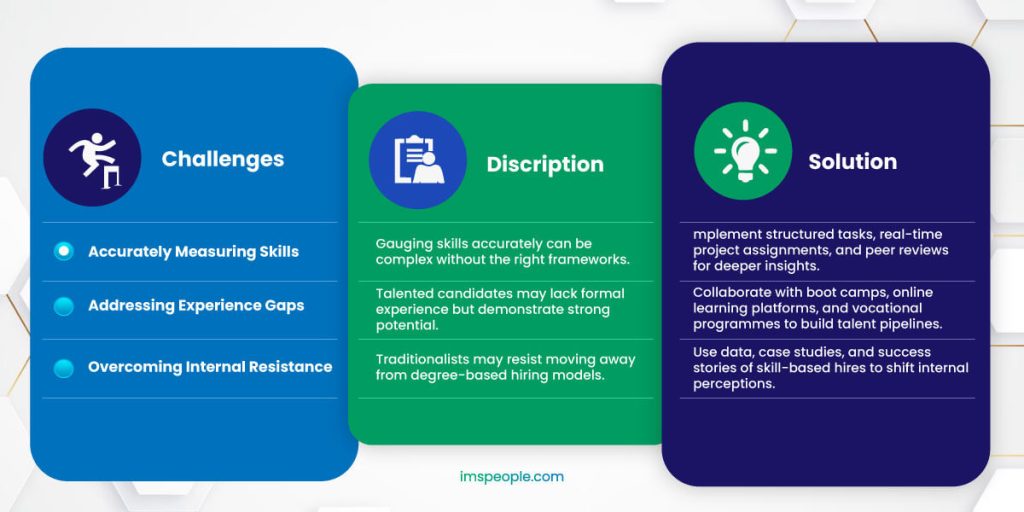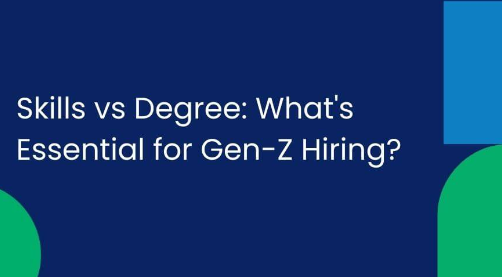This blog was supplied to TechServe by IMS People Possible. View the original post here.
Skills shape careers, not certificates. More than 80% of employers now prioritize skills over formal education. This shift isn’t just a passing phase—it’s a pivotal shift in talent acquisition that mirrors the rapid evolution of industries. Companies embracing this change aren’t just surviving—they’re thriving by tapping into previously overlooked talent pools.
The pivot from credential-driven hiring to skill-based recruitment reflects a broader, strategic response to necessity. As technology advances and the gig economy expands, businesses realise that tomorrow’s winning teams are built on capabilities, not certificates.
What’s Driving Skill-Based Hiring?
1. The Rise of the Gig Economy
- The gig economy is reshaping how work gets done, favouring agility and specialised expertise over traditional structures.
- A striking 36% of the U.S. workforce now engages in gig roles—and this figure is steadily climbing. Businesses are responding by prioritising immediate results, where skills become the core currency. The focus has shifted from long-term credentials to real-time impact.
2. Technological Acceleration
Technology is evolving at breakneck speed, outpacing the ability of conventional education to keep up. 65% of hiring managers are prepared to consider candidates based purely on their skills—regardless of formal education or past job titles. This shift signals a promising era for candidates willing to upskill and adapt.
3. The Drive for Greater Diversity
Credential-heavy hiring limits diversity by overlooking capable candidates from non-traditional backgrounds. Harvard Business Review reports that skill-based hiring enhances workforce diversity by 20%, providing underrepresented groups with fairer opportunities to succeed.
4. Meeting Generational Demands
Millennials and Gen Z crave career growth and continuous learning. A remarkable 77% of Gen Z professionals foresee the need to reskill regularly to remain competitive in the evolving job market. Companies prioritising skill development align well with these aspirations, fostering loyalty and innovation.
How Skill-Based Hiring is Transforming Talent Acquisition?
1. Redefining Job Descriptions
Forward-thinking companies are reshaping job descriptions to focus on competencies and soft skills rather than rigid degree requirements. 30% surge in job postings that have dropped degree prerequisites in the past two years. This shift broadens the candidate pool and prioritises practical ability.
2. Prioritising Assessments Over Resumes
Hiring managers are increasingly favouring real-world assessments and project-based evaluations over traditional CVs. 79% of organisations now use skill tests as part of their recruitment process. This approach uncovers practical talent that might otherwise be overlooked.
3. Internal Upskilling and Development
The boundary between hiring and workforce development is becoming increasingly blurred. 50% of employees will require reskilling by 2025. Companies are investing heavily in upskilling initiatives to future-proof their workforce, ensuring internal growth matches external demands.
4. Reducing Bias in Hiring
A skills-first approach inherently reduces unconscious bias, shifting the focus from background to performance. PwC found that organisations adopting this model experienced a 30% drop in hiring bias. By focusing on what candidates can do rather than where they studied, companies build stronger, more diverse teams.
Challenges in Skill-Based Hiring (and How to Overcome Them)









